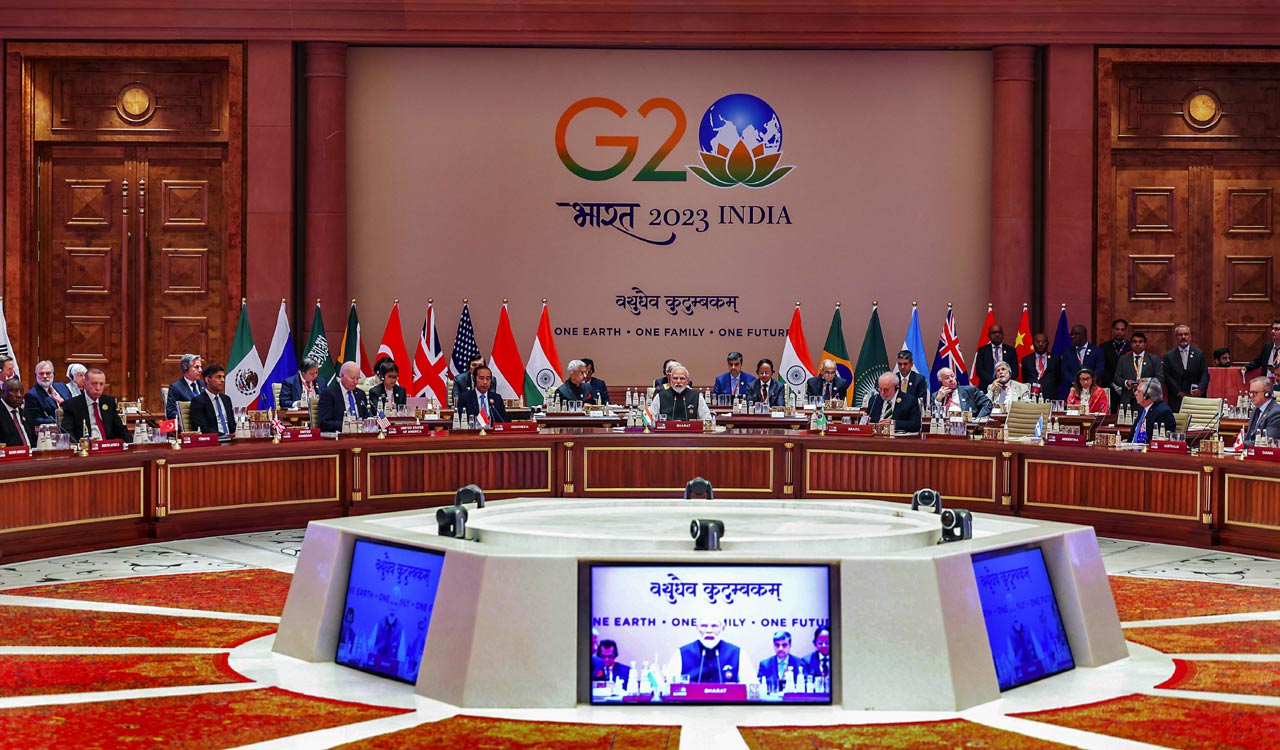
The G20 leaders under India's presidency asked the FSB and standard-setting bodies (SSBs) to promote the effective and timely implementation of these recommendations in a consistent manner globally to avoid regulatory arbitrage.
Published Date - 06:26 PM, Sat - 9 September 23
New Delhi: The G20 member nations on Saturday endorsed the Financial Stability Board’s recommendations on regulation, supervision and oversight of crypto assets to mitigate risks associated with such an ecosystem.
Observing that the G20 continue to closely monitor the risks of the fast-paced developments in the crypto asset ecosystem, the New Delhi Leaders’ Declaration said G20 Finance Ministers and Central Bank Governors will discuss taking forward the roadmap at a meeting in October 2023.
The next meeting of G20 Finance Ministers and Central Bank Governors is scheduled to take place in Marrakech, Morocco.
“We endorse the Financial Stability Board’s (FSB’s) high-level recommendations for the regulation, supervision and oversight of crypto-assets activities and markets and of global stablecoin arrangements,” the Declaration said.
The G20 leaders under India’s presidency asked the FSB and standard-setting bodies (SSBs) to promote the effective and timely implementation of these recommendations in a consistent manner globally to avoid regulatory arbitrage.
“We welcome the IMF-FSB Synthesis Paper, including a Roadmap, that will support a coordinated and comprehensive policy and regulatory framework taking into account the full range of risks and risks specific to the emerging market and developing economies (EMDEs) and ongoing global implementation of FATF standards to address money laundering and terrorism financing risks,” the Declaration said.
It has welcomed the shared FSB and SSBs work plan for crypto assets and the BIS Report on The Crypto Ecosystem: Key Elements and Risks.
The G20 leaders also called for the swift implementation of the CryptoAsset Reporting Framework (CARF) and amendments to the Common Reporting Standard (CRS).
The roadmap includes currently planned and ongoing work related to the implementation of policy frameworks, which taken together, seek to build institutional capacity beyond G20 jurisdictions; enhance global coordination, cooperation, and information sharing; and address data gaps necessary to understand the rapidly changing crypto asset ecosystem.
As per the Synthesis Paper, the FSB will, by 2025-end, conduct a review of the status of the implementation of the two sets of high-level recommendations at the jurisdictional level.
As the FSB recommendations are deliberately high-level and principles-based, the FSB will also consider whether additional guidance or recommendations are necessary, taking into account relevant international sectoral standards and guidance that have been or can be developed by SSBs.
To protect monetary stability, crypto assets should not be granted official currency or legal tender status, the paper suggested.
Cryptocurrencies are digital currencies in which encryption techniques are used to regulate the generation of currency units and verify the transfer of funds and such virtual currencies operate independently of a central bank.
The Synthesis Paper: Policies for Crypto-Assets was prepared by the International Monetary Fund (IMF) and Finance Stability Board (FSB) at the request of the Indian G20 presidency.
On the central bank-backed digital currency, the G20 leaders welcomed discussions on the potential macro-financial implications arising from the introduction and adoption of Central Bank Digital Currencies (CBDCs), notably on cross-border payments as well as on the international monetary and financial system.
The G20 leaders resolve to deploy all available digital tools and technologies and spare no effort in fostering safe and resilient digital ecosystems, and ensuring that every citizen on our planet is financially included.





Leave a Reply